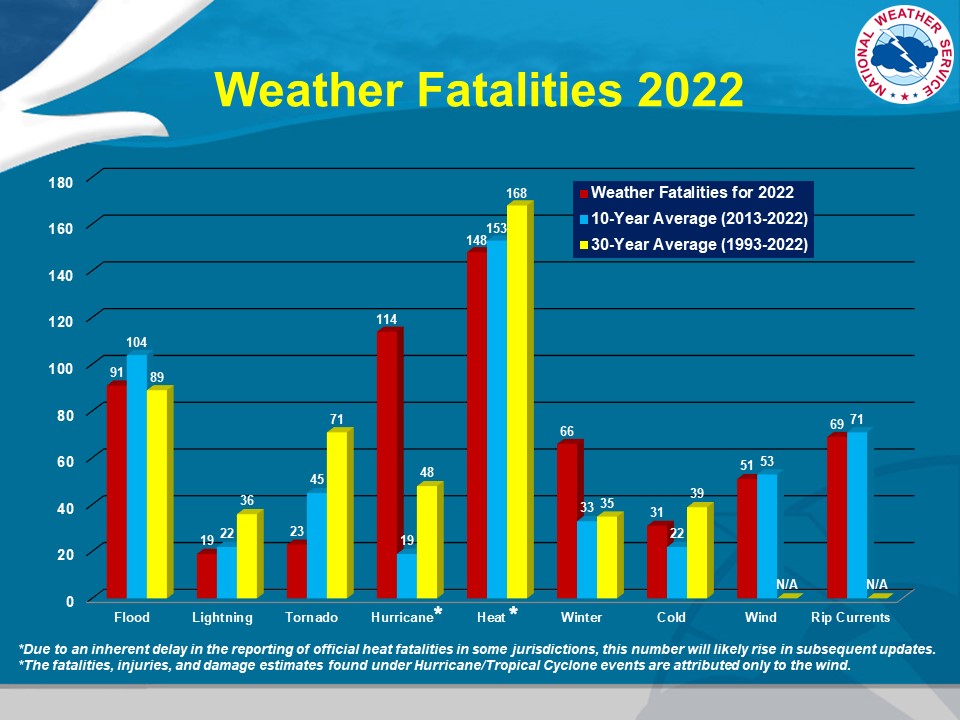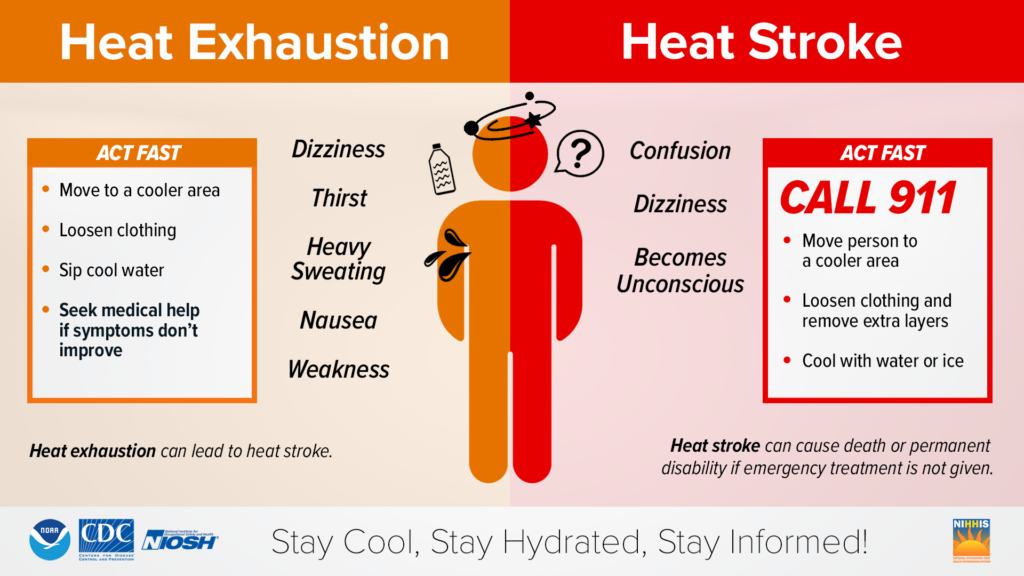Extreme Heat Safety Tips

As the scorching rays of the sun intensify and temperatures soar, it becomes increasingly important to be cautious and well-prepared when facing excessive heat. Extreme heatwaves can be not only uncomfortable but also dangerous, posing serious health risks such as heat exhaustion and heatstroke. Shockingly, heat stands as the number one weather-related killer, responsible for numerous heat-related illnesses and fatalities. However, with a little awareness and the right precautions, we can navigate through these hot days safely and make the most of the summer season. In this article, we will discuss some essential heat safety tips to help you beat the heat and stay cool.
Stay Hydrated
One of the most crucial heat safety tips is to stay hydrated. Drink plenty of water throughout the day, even if you don’t feel thirsty. When exposed to high temperatures, our bodies lose fluids through sweat, which can lead to dehydration. Avoid excessive consumption of caffeinated and alcoholic beverages as they can contribute to dehydration.
Dress Appropriately
Choosing the right clothing can make a significant difference in how your body copes with excessive heat. Opt for loose-fitting, lightweight, and light-colored clothing to help your skin breathe and reflect sunlight. Wearing a wide-brimmed hat and sunglasses can also provide additional protection from the sun.
Seek Shade and Limit Outdoor Activities
During peak heat hours, usually from late morning to mid-afternoon, it’s best to stay indoors and avoid strenuous outdoor activities. If you need to be outside, find shade whenever possible. Plan your outdoor chores or exercise routines for early morning or late evening when the temperatures are cooler.
Use Sunscreen
Sunscreen is your best friend during hot weather. Applying a broad-spectrum sunscreen with a high SPF can protect your skin from harmful UV rays and prevent sunburns. Remember to reapply it every two hours, especially if you’re sweating or swimming.
Create a Cool Environment
Keep your living space cool by using fans, air conditioners, or shades to block direct sunlight. If you don’t have air conditioning at home, consider spending time in public places like shopping malls or community centers that are equipped with cooling systems.
Never Leave Kids or Pets in a Parked Vehicle
Leaving children or pets unattended in a parked car, even for a few minutes, can have tragic consequences. The temperature inside a car can rise to dangerous levels rapidly, leading to heat-related illnesses and fatalities. Always take your little ones and furry friends with you, or leave them at home if you have to run errands.
Check on Vulnerable Individuals
During heatwaves, it’s crucial to check on elderly family members, neighbors, and anyone with chronic health conditions, as they are more susceptible to heat-related illnesses. Offer assistance, if needed, and ensure they have access to a cool and safe environment.
Take Cool Showers or Baths
A refreshing cool shower or bath can help lower your body temperature and provide relief from the heat. If you don’t have access to a shower, using a damp cloth to wipe your face, neck, and arms can also be beneficial.

Knowing the Signs of Heat-Related Illnesses
During periods of high heat, it is important to know the sings of heat-related illnesses and ways to respond.
Heat Exhaustion: Signs of heat exhaustion include heavy sweating, paleness, muscles cramps, tiredness, weakness, fast or weak pulse, dizziness, headache, fainting, nausea, or vomiting.
Heat Cramps: Signs of heat cramps include muscle pains or spasms in the stomach, arms, or legs.
Heat Stroke: Signs of heat stroke include extremely high body temperatures (above 103 degrees F) taken orally. Red, hot and dry skin with no sweat. Rapid, strong pulse. Dizziness, confusion, or unconsciousness. If you suspect heat stroke, call 9-1-1 or get the person to a hospital immediately. Cool down with whatever methods are available until medical help arrives. Do not give the person anything to drink.
Excessive heat can be a challenging aspect of summer, but with the right precautions and awareness, you can stay safe and cool during even the hottest days. Remember to stay hydrated, dress appropriately, limit outdoor activities during peak heat hours, and keep your living space cool. By following these essential heat safety tips and looking out for vulnerable individuals in your community, you can enjoy the summer season while prioritizing your health and well-being. Stay cool, and stay safe!